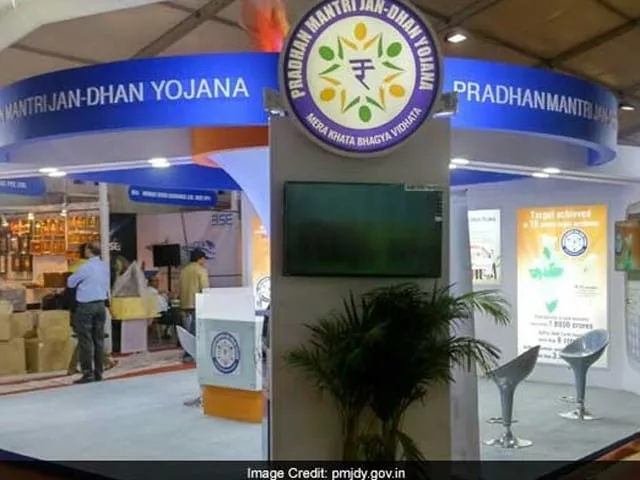The Marshall Plan, launched by the United States in 1948 to rebuild post-war Europe, exemplifies how a keystone intervention can drive widespread positive change. By providing financial aid, the Plan revived economies, stabilised political landscapes, modernised industries, and laid the groundwork for European integration. It fostered job creation, improved living standards, and strengthened alliances, showing how targeted support can create a domino effect across society.
Similarly, India’s Pradhan Mantri Jan Dhan Yojana (PMJDY) is a keystone intervention in financial inclusion. By bringing millions into the formal banking system, PMJDY has enhanced economic participation, reduced poverty, and contributed to social stability, mirroring the transformative impact of the Marshall Plan.
Several Improvements
The PMJDY, launched on August 28, 2014, aimed to include 7.5 crore unbanked households in the formal financial system, leveraging the JAM (Jan Dhan, Aadhar, Mobile) trinity. As a result, more than 80% of adults now have formal financial accounts, compared to around 50% in 2011, significantly reducing the gender gap in account ownership. Public sector banks, which manage 78% of PMJDY accounts, have opened around 53 crore accounts with balances totalling Rs 2.31 lakh crore as of August 2024. Analysis by Soumya Kanti Ghosh and team shows that these accounts have seen an increase in the average balance from Rs 1,065 in March 2015 to Rs 4,352 in August 2024, with 55.6% belonging to women and 66.6% in rural and semi-urban areas. The scheme has also shown social benefits, such as a reduction in thefts and a decrease in the consumption of intoxicants in states with higher account penetration. Over the past decade, Rs 38.49 lakh crore has been transferred via Direct Benefit Transfers (DBT), plugging Rs 3.48 lakh crore in leakages and boosting digital payments, with India recording 55.7 billion UPI transactions by July 2024.
Today, as India has made significant strides in financial inclusion, we often fail to fully recognise the significant impact it has had on the lives of ordinary citizens across the country. One of the most compelling arguments for financial inclusion is its potential to drive economic growth and reduce poverty. According to a study by Demirgüç-Kunt and Levine (2008), financial inclusion contributes to economic growth by mobilising savings, fostering capital accumulation, and improving resource allocation. By providing access to credit, savings, insurance, and payment systems, financial inclusion enables individuals to invest in education, health, and businesses, leading to improved economic outcomes.
A comprehensive review by the World Bank found that financial inclusion reduces poverty by enabling the poor to manage risk, smooth consumption, and invest in their future. For instance, access to microcredit allows small entrepreneurs to start or expand businesses, which can lift them and their families out of poverty. PMJDY coupled with the Pradhan Mantri Mudra Yojana (PMMY) has significantly impacted India’s micro and small enterprises by providing over ₹27.75 lakh crore in loans to 47 crore entrepreneurs since its inception in 2015. The scheme has promoted financial inclusion, with 69% of loans going to women and 51% to SC/ST and OBC entrepreneurs, thereby enhancing social equity. It has also been instrumental in job creation, particularly in rural and semi-urban areas, by encouraging self-employment and supporting the growth of small businesses.
The Digital Era
Additionally, digital financial services have been shown to significantly reduce transaction costs, making it easier for the poor to save and invest.
Financial inclusion is a key driver of social and gender equity. Studies such as those by Dupas and Robinson (2013) have shown that women, in particular, benefit from financial inclusion. Access to financial services empowers women by giving them control over their finances, enabling them to make decisions about their own lives and their families. This empowerment leads to broader social benefits, including improved health and education outcomes for children.
Furthermore, financial inclusion can help reduce income inequality. A study by Clarke, Xu, and Zou (2006) found that financial development, which includes increasing financial inclusion, is associated with lower income inequality. Thus, access to financial services increases the opportunities to improve the economic standing of the poor.
The rise of fintech has also brought a new dimension to financial inclusion by introducing innovative products and services that reach previously underserved populations. A recent study by Sahay et al. (2020) highlights how digital financial services, including mobile banking and e-wallets, have transformed the financial landscape, particularly in developing countries. The rise of fintech has significantly amplified the impact of financial inclusion through the deployment of the India Stack, a set of APIs that allow governments, businesses, startups, and developers to utilise India’s digital infrastructure for seamless, paperless, and cashless service delivery. The India Stack, comprising Aadhaar (a unique identification system), e-KYC, UPI (Unified Payments Interface), and other digital layers, has been a game-changer in extending financial services to underserved populations.
The UPI Revolution
The India Stack has enabled the rapid growth of digital financial services, particularly through mobile banking and e-wallets, which have transformed the financial landscape in the country. For example, the UPI platform has revolutionised payments by allowing instant money transfers between bank accounts using a mobile phone, drastically reducing transaction costs and eliminating the need for physical infrastructure like bank branches. As a result, millions of people who were previously excluded from the formal financial system now have access to efficient and convenient financial services.
As India continues to build on this momentum, leveraging innovations like the India Stack, the potential for even greater financial inclusion is within reach. PMJDY is a keystone intervention that has sparked a ripple effect across the economy, driving growth, fostering equity, and paving the way for a more inclusive and prosperous India. It should be celebrated.
(Bibek Debroy is Chairman, Economic Advisory Council to the Prime Minister, and Aditya Sinha is OSD, Research, Economic Advisory Council to the Prime Minister)
Disclaimer: These are the personal opinions of the author
